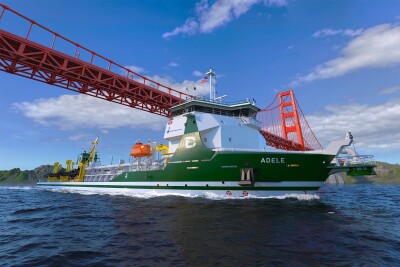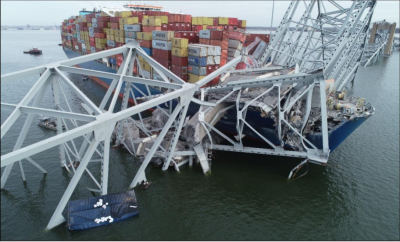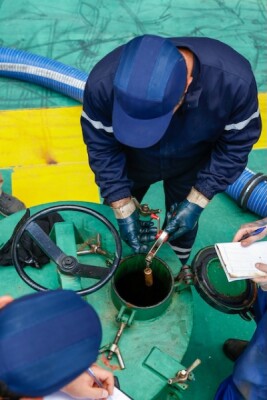A third mission in July will attempt to recover the voyage data recorder of the sunken containership El Faro, potentially a major piece of forensic evidence in the Oct. 1 loss of the vessel and all 33 crewmembers in Hurricane Joaquin.
The VDR may hold crucial details of the TOTE Services 790’ ro/ro containership’s last hours, including navigational data and conversations among the crew members on the bridge, Coast Guard and National Transportation Safety Board officials have said.
On Monday, the NTSB announced that a third undersea mission to the sinking site has been organized for July, with the Navy fleet tug Apache, carrying the remotely operated vehicle CURV-21.
The 226’x42’x15” Apache and CURV-21 were the same search package that first identified the El Faro wreck 15,000’ down northeast of the Bahamas on Nov. 1. The ship's bridge deck was located 10 days later as part of the same mission. But the mast base that held the VDR had separated from the bridge deck and was not found with the other wreckage.
A second mission by the research vessel Atlantis, operating the autonomous underwater vehicle Sentry, located the VDR on April 26, but its position pinned under the mast made recovery impossible at the time, NTSB officials said. Now, they have a new plan.
“After investigators collaborated in May with scientists and deep water recovery experts, to determine how the VDR could be recovered given its proximity to nearby obstacles, the NTSB contracted with the U.S. Navy Supervisor of Salvage to assist in the recovery effort,” according to the NTSB announcement.
“Investigators from the NTSB and the U.S. Coast Guard, and engineers from the U.S. Navy and Phoenix International, the operator of CURV-21, will be aboard USNS Apache when it departs in early July for the accident site near the Bahamas,” the agency said.
After three to four days underway to the site, it is expected five days will be needed to recover the VDR. The device – similar to the flight data recorders on commercial aircraft will be examined at an NTSB laboratory in Washington, D.C., to determine if its information can be downloaded and used.
If that data is recovered, it could offer important new information for the NTSB and the Coast Guard Marine Board of Inquiry, which has met in two sessions totaling four weeks in Jacksonville, Fla., interviewing witnesses about the El Faro and its last voyage.






